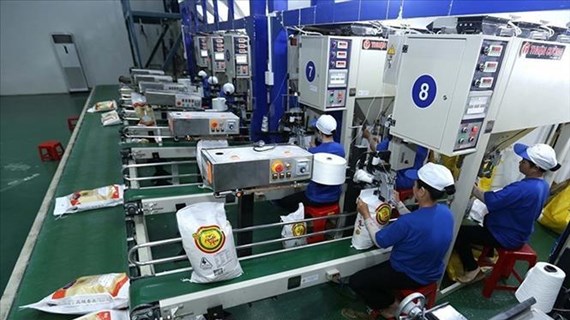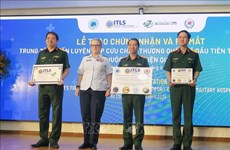Checkpoints keep VN free of A/H1N1 flu
Vietnam remained free of the A/H1N1 virus, the head of the National Institute of Hygiene and Epidemiology, Nguyen Tran Hien, said on May 24.
Quarantine checkpoints at 17 gateways into the country, including airports, border gates and ports check incoming travelers for the virus.
Between 4,000 and 5,000 from areas with A/H1N1 virus enter Vietnam daily.
The Health Ministry said passengers on the same flight as a Vietnamese-American girl who tested positive for the A/H1N1 virus, were clear of the virus.
About 400 to 1,000 people test positive to the virus daily, the ministry said. Asian countries, including Japan, Korea, China and Thailand have had positive tests, which cases in Japan rising.
The Ministry of Agriculture and Rural Development has told provinces, cities and related ministries to step up controls of the slaughter, trade and consumption of animal products in an effort to prevent further outbreaks of acute diarrhea.
Dr Nguyen Huy Nga, the head of the Ministry of Health’s Environment and Preventive Health Department, said the 832 cases of acute diarrhea reported by Friday included 88 positive tests for the vibrio bacteria.
To ensure food safety, the ministry said only licensed slaughterhouses would be allowed to kill animals for human consumption.
Rural areas must meet this requirement. Animals must be inspected and quarantined by veterinarians and health officials before being sent for slaughter.
Poultry in wet markets must be slaughtered separately from other foodstuffs and goods, and slaughterers must wear protective clothing.
Animal products must be displayed for sale at stipulated places in supermarkets and wet markets. Products not quarantined are not allowed to be sold./.












